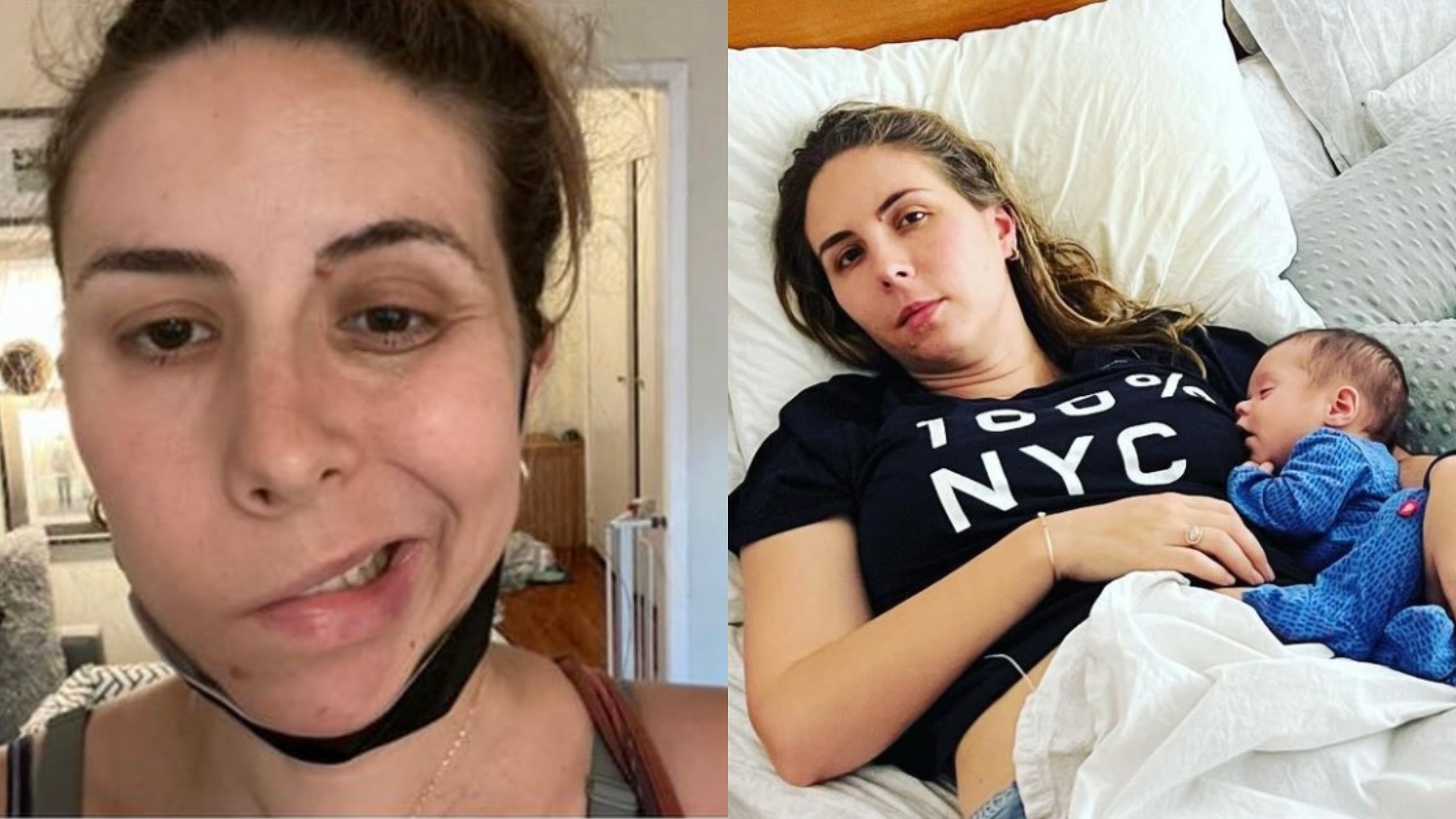
Pregnancy can bring on a slew of medical conditions. Diagnosis of gestational diabetes, higher than normal blood pressure, and even restless leg syndrome are things that women experience during their pregnancy. Although not as common, pregnancy can also bring on conditions such as Bell's palsy, or idiopathic facial palsy.
Bell's palsy affects 40,000 people per year, according to the National Institute of Neurological Disorders and Stroke. The symptoms often come on quickly and out of the blue and can be pretty frightening to a mom-to-be. One new mom is speaking out about her experience with Bell's palsy and what it's like to wake up and see a different face in the mirror.
The onset of symptoms can be scary.
Writer Elena Sheppard told Yahoo! Life that she began to experience subtle symptoms of Bell's palsy during the final weeks of a twin pregnancy. Her face felt weird, and her lip "felt swollen," she said. Several hours later, the condition significantly worsened. "It was basically a sudden collapse of the right side of my face," Sheppard said, indicating it was "extremely painful."
The 35-year-old mother thought she was experiencing a stroke and contacted her doctor. The doctor reassured her that it sounded like Bell's palsy. Now it had a name, which gave her a bit of comfort. Because the symptoms are similar to a stroke, she had an MRI to be sure.
Doctors gave Sheppard medication, but it didn't solve all the problems. "Drinking water — it dribbles out of your mouth," she shared. "While eating, I bite my tongue and cheeks a lot. It's just like everything is in the wrong spot."
Nerve pressure causes Bell's palsy.
Dr. Jason Nellis, assistant professor of otolaryngology at Johns Hopkins Medical Center, told Yahoo! Life that Bell's palsy comes on suddenly and occurs when a facial nerve that runs along the inner ear becomes inflamed. In turn, the inflammation puts pressure on the nerve, causing facial paralysis.
The exact cause of Bell's palsy is unknown, but it is thought to be a side effect of some viruses such as herpes zoster or herpes simplex. Nellis explained that Bell's palsy is more common in pregnant women, particularly during the third trimester, but there is no known reason.
Bell's palsy changes a mom.
The condition is excruciating and changes a person's physical appearance, which can be challenging. Bell's palsy can make it difficult to purse your lips to drink or to close your eyes to sleep. It takes a physical toll.
Sheppard explained that being unable to smile in photos with her newborn twins was devastating. She said that being a mom of infants, however, has kept her occupied and not focused on her appearance.
Sheppard still struggles.
Her babies are healthy, and for the most part, so is she, but that doesn't mean that the condition has been without a toll for the new mom. She tries not to dwell on it, but when she is alone with her thoughts "it gets me really sad," she shared.
At home, Sheppard said she's in "this bubble," but when she is out and about, "I see people looking at me and it's,'Right, this is not my face.'"
It is possible to recover from Bell's palsy.
Bell's palsy isn't always a permanent condition. As Nellis said, "One of the keys is early diagnosis and early treatment. If you can receive treatment within three days of onset, that has a better chance of meaningful recovery."
Even with treatment, the day-to-day struggles of living with facial paralysis still exist and can be challenging for a mom. "It doesn't feel normal," Sheppard said.
Support exists for women suffering from Bell's palsy.
Sheppard encouraged other moms in an Instagram post. She pointed out that it is important for new moms to focus on what is on the inside, not just the outside.
"We are inundated with constant images of perfection — especially in this new-mom period of life — and it's important to me to show that 'perfection' is not real or attainable, not even close," she wrote in the post. "Bells Palsy is three times more likely in pregnant women — if I had known that before I would have felt far less alone."




